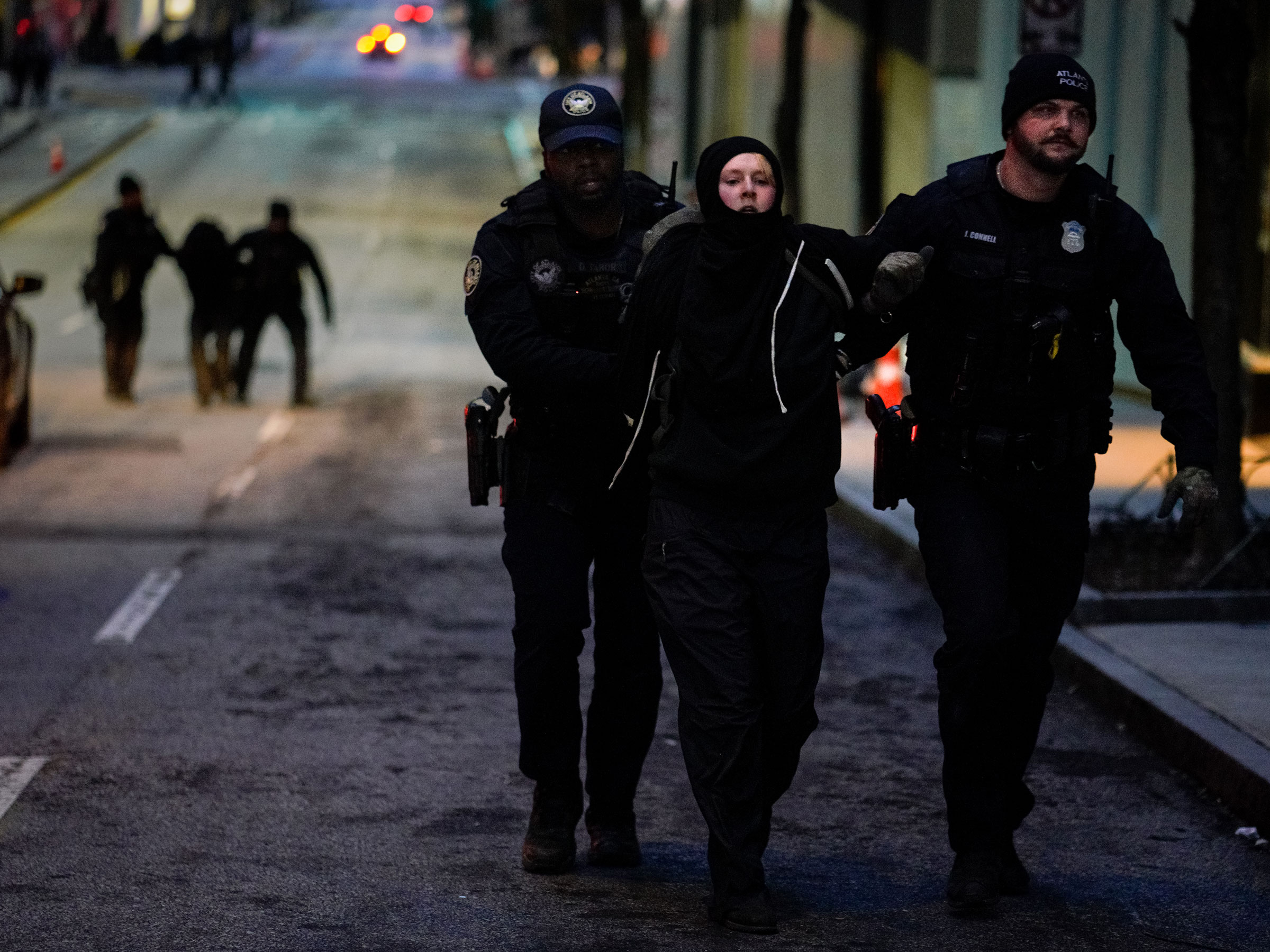On Feb. 1, the Georgia legislature passed Senate Bill 63, a law aimed squarely at stifling democracy and dissent. Contrary to what some would have us believe, the law would also undermine public safety. If signed into law by Governor Brian Kemp, the bill would cap the number of times that people and groups can pay bail, purposefully targeting community bail funds, churches, and any group pooling resources for those in overcriminalized communities. The bill also introduces a new misdemeanor offense for anyone posting bail contrary to the ban and narrows the list of offenses for which release without bail may even be an option, which would increase the number of people in jail pretrial.
Last year, officials in Georgia began targeting the Atlanta Solidarity Fund, an organization that posts bail for arrested activists and protesters whose charges are often later dropped. Three organizers from the fund were arrested and prosecuted, charged with charity fraud, money laundering, and conspiracy for the acts of posting bail for people who were protesting “Cop City,” a controversial proposal to raze forest land and build in its place a new police training center. The pending legislation, SB 63, escalates these attacks on bail funds and their critical roles in enabling poor people to advocate for themselves and their communities.
Similar attacks are gaining traction in other states. In recent weeks, anti-bail-fund bills have been introduced in state legislatures in Kentucky, Tennessee and Virginia. Indiana has had such a law since 2022. Whether aiming to restrict the use of bail funds, introducing new regulations, or banning them outright, the outcomes of these laws are to muffle community voices while more people remain locked up simply because they are too poor to pay bail.
Read More: Atlanta Democrats Vote to Fund Controversial Police Training Center
These anti-bail-fund laws also threaten democracy by curtailing protest and dissent. Efforts to attack and eliminate bail funds join voter suppression and the criminalization of protest as go-to tactics of those who would stifle our democracy. Bail funds exist precisely because they are a democratic, community-led effort to fight mass incarceration. As Dawn Harrington from Free Hearts, a group in Tennessee led by formerly incarcerated women that operates a bail fund, told one of us, “We’re not just trying to run bail funds, we’re trying to get freedom.”
Some supporters of anti-bail-fund laws would argue they are in the interest of public safety—but this is a smokescreen. Even a few days in jail pretrial makes someone more likely to be re-arrested once released because of the clear destabilizing effects of jail: in addition to impacting families, those unable to make bail are unable to show up to work or access support services and more likely to lose their jobs and homes.
More than 400,000 unconvicted individuals are incarcerated in U.S. jails at any given moment, not because they have been proven guilty, but because many lack the financial means to pay bail. If we really care about safety, we would take all possible measures to keep people away from a cycle of carceral violence. We should support efforts that actually lead to more stable communities.
Critics of bail funds and pretrial release argue that we need money bail because without requiring people to pay cash, they are less inclined to show up for their own trials. Critics also claim that crime will rise if more people—seen as potential criminals despite their legally innocent status—are free. However, recent data from four states and nine cities and counties across the country clearly demonstrate that releasing more people pretrial does not lead to more arrests.
As bail funds have risen in prominence in the last decade, system officials have pushed back against them by trying to enact restrictions or setting bail in ways that don’t allow the funds to intervene. This pushback has partially been fueled by misinformation and cherry picking by the media, which relies on racist tropes and focuses on outlier cases of alleged violent acts by people whom bail funds have assisted. The thousands and thousands of people whom bail funds have been able to free in the last decade without incident do not make sensational stories or fit within the prevailing law-and-order narrative.
These new proposed laws should scare us all. One of us is a law professor who published a book last year, Radical Acts of Justice: How Ordinary People are Dismantling Mass Incarceration, about the power of community bail funds and other forms of collective resistance in criminal courthouses. Another of us is a lifelong activist who has seen firsthand how $200 dollars can allow a son to go home and take care of his dying father. Even a year ago, despite years of experience, neither of us could have predicted this level of repression and criminalization of collective care.
By freeing people in the name of the community, bail funds reveal the bail system for what it is: a way not only to incarcerate those in poverty, but also to force plea bargains and maintain mass incarceration. Those who support democracy and strong communities should contact their state legislators in states where these bills are pending and tell them these bills are eroding our safety and freedom. Through collective action, bail funds are a testament to a community’s belief in collective care—a principle starkly absent in the actions of those who would instead repress these funds and the people who support them.
Legend is a singer, songwriter, producer, activist, and the founder of FREEAMERICA. Simonson is a lawyer, professor, and author.
- Caitlin Clark Is TIME's 2024 Athlete of the Year
- Where Trump 2.0 Will Differ From 1.0
- Is Intermittent Fasting Good or Bad for You?
- The 100 Must-Read Books of 2024
- Column: If Optimism Feels Ridiculous Now, Try Hope
- The Future of Climate Action Is Trade Policy
- FX’s Say Nothing Is the Must-Watch Political Thriller of 2024
- Merle Bombardieri Is Helping People Make the Baby Decision
